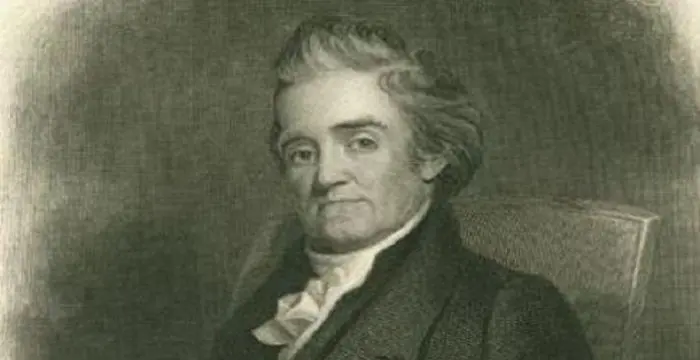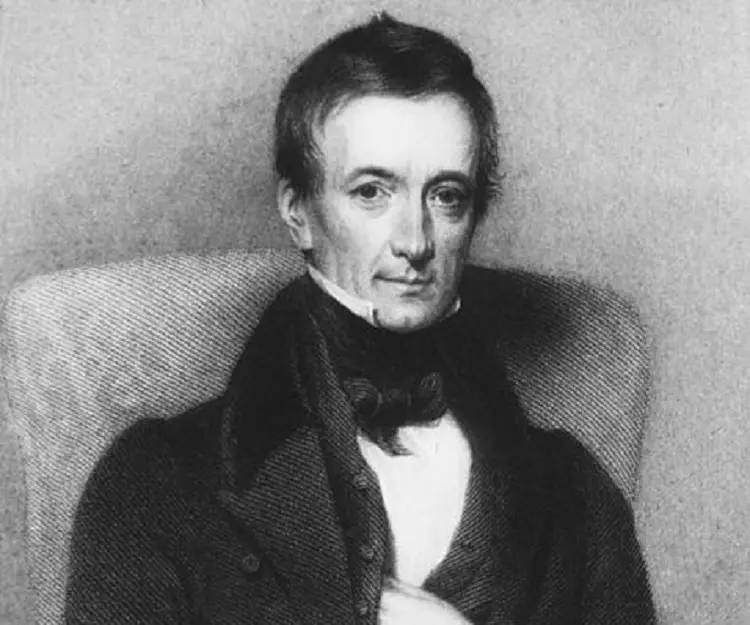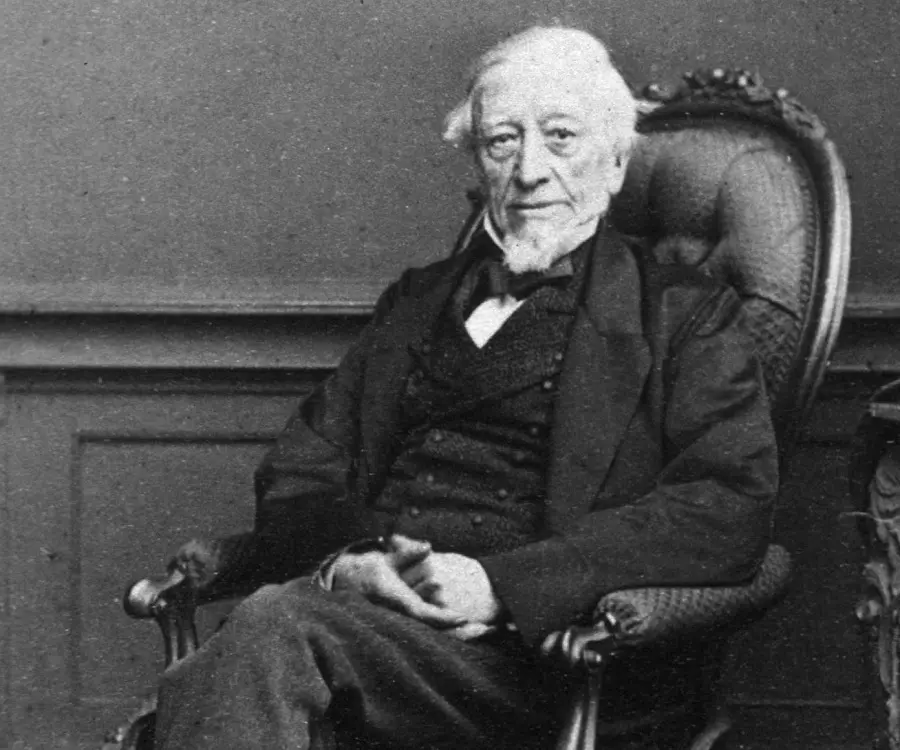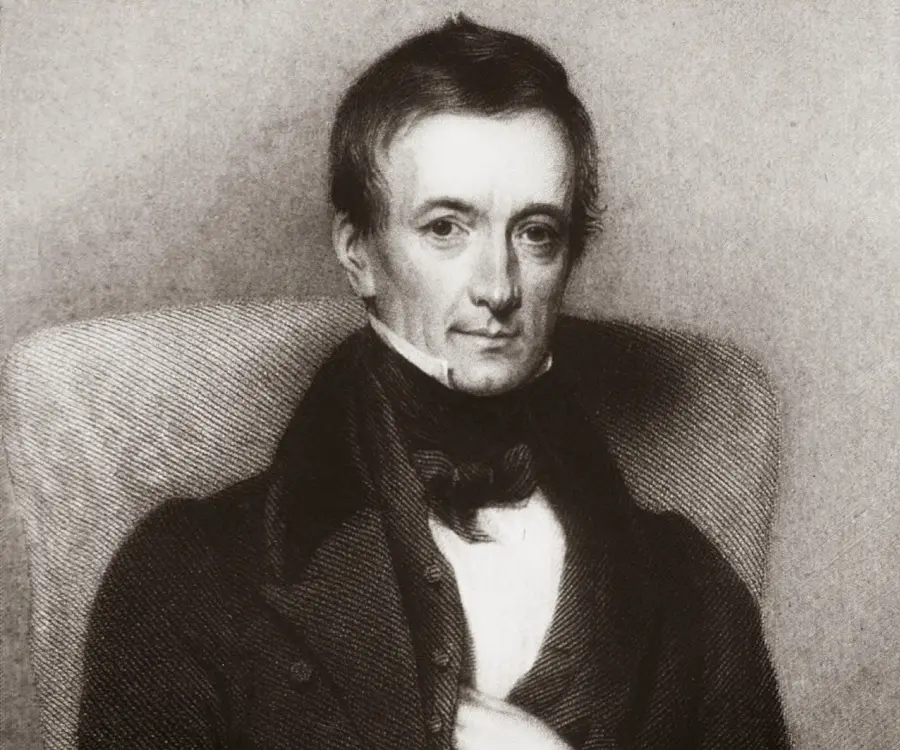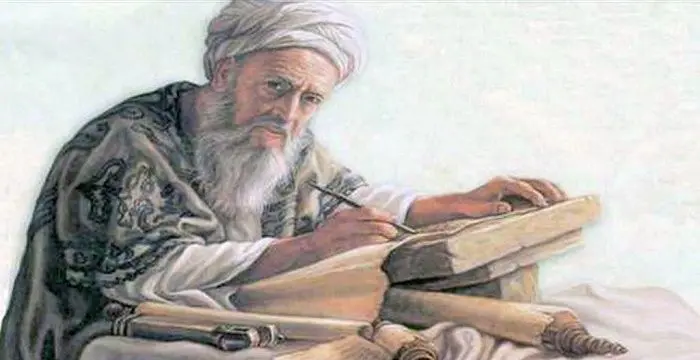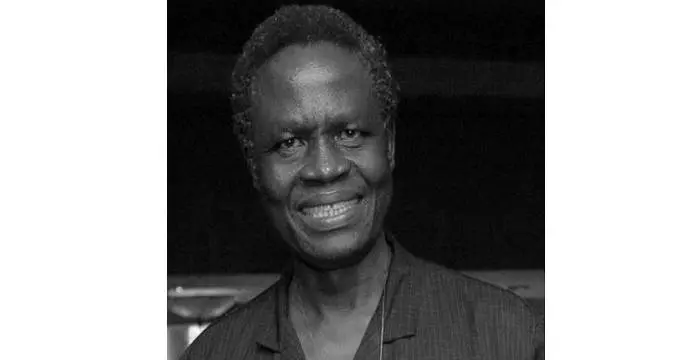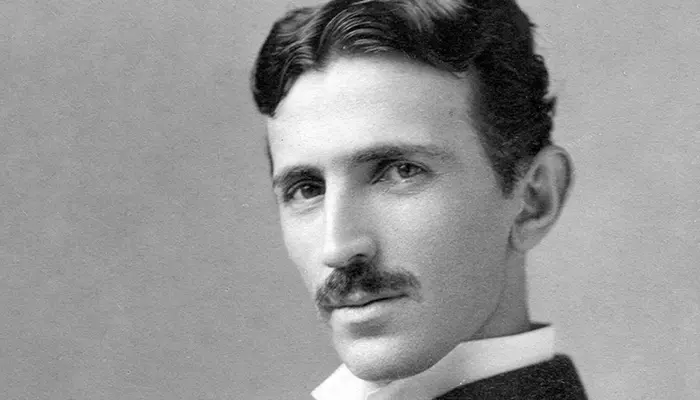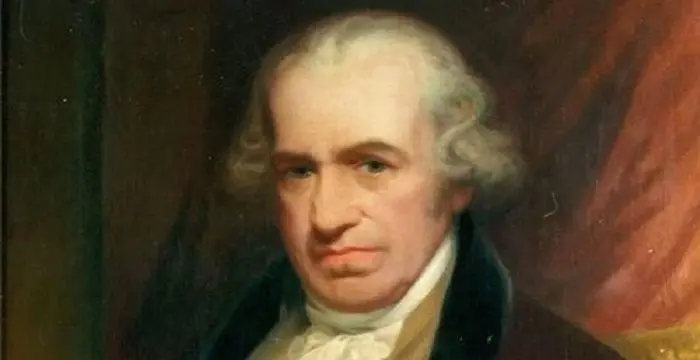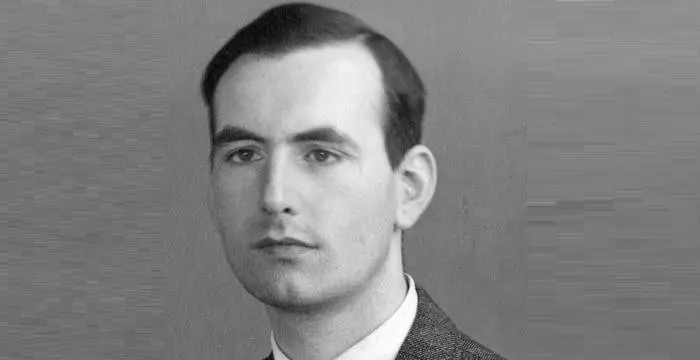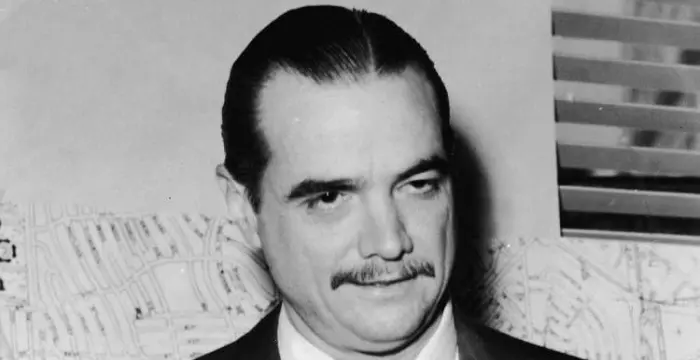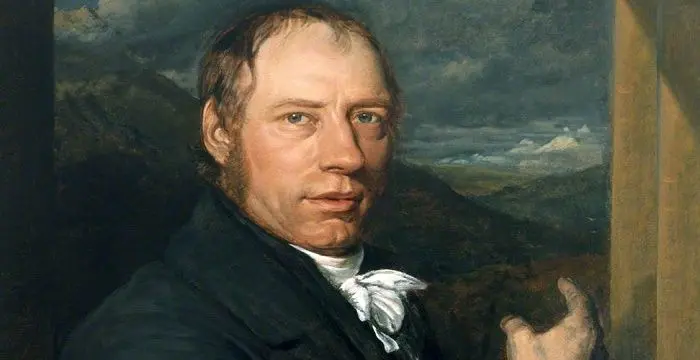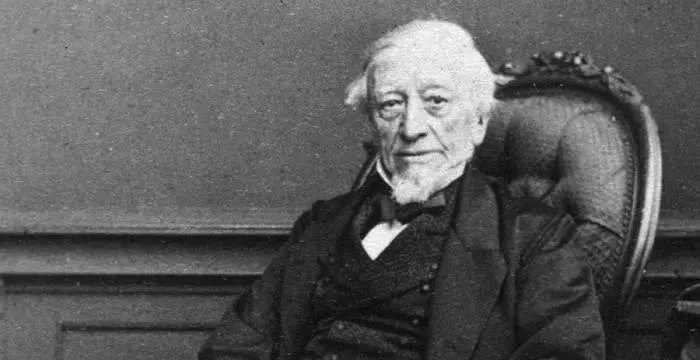
Peter Mark Roget - Academics, Birthday and Facts
Peter Mark Roget's Personal Details
Peter Mark Roget was an English physician and philologist who is most celebrated for 'Roget's Thesaurus of English Words and Phrases'.
| Information | Detail |
|---|---|
| Birthday | January 18, 1779 |
| Died on | September 12, 1869 |
| Nationality | British |
| Famous | University Of Edinburgh, Intellectuals & Academics, Inventors & Discoverers, Physicians, Academics, Intellectuals, Lexicographer |
| Spouses | Mary Taylor |
| Known as | Peter Mark Roget, Roget, Peter Roget |
| Universities |
|
| Notable Alumnis |
|
| Birth Place | Soho |
| Gender | Male |
| Sun Sign | Capricorn |
| Born in | Soho |
| Famous as | Lexicographer |
| Died at Age | 90 |
// Famous Lexicographer
Noah Webster
Noah Webster was a famous American lexicographer, political writer, editor and English language spelling reformer. This biography provides detailed information about his childhood, life, works, achievements and timeline.
Peter Mark Roget's photo
Who is Peter Mark Roget?
Peter Mark Roget was an English physician, philologist and inventor who is most celebrated for 'Roget's Thesaurus of English Words and Phrases', a classified collection of related words, first published in 1852. Born to a Swiss clergyman in England, Roget attended the Edinburgh University and graduated in medicine. As a young physician, he published works on tuberculosis and on the effects of nitrous oxide, then used as an anesthetic. After initially practicing in Bristol and Manchester, he moved to London and continued to lecture on medical topics. Later, Roget invented a slide rule to calculate the roots and powers of numbers which formed the basis of slide rules that served as the common currency in schools and universities until the invention of the calculator. He also had a keen interest in optics and wrote a paper suggesting the methods to improve the kaleidoscope. Along with that, he also wrote papers on a wide range of topics such as, natural theology, phenology and contributed to several encyclopedias of the time. After taking effective retirement from medicine, he spent the rest of his life on the project for which he is most remembered today, 'Roget's Thesaurus of English Words and Phrases', a dictionary of synonyms. A fellow of the Royal Society, he served as its Secretary for more than 20 years, and his remarkable Thesaurus has never been out of print since its first publication
Childhood & Early Life
Peter Mark Roget was born on January 18, 1779, in Soho, London, England, to Jean Roget, a Swiss clergyman, and his wife, Catherine Romilly. He had a younger sister.
The death of his father when Peter was a child had a deep impact on him. He struggled with depression for most of his life. By the age of eight, his fascination with list-making as a coping mechanism was well established.
After completing school, Roget went to the University of Edinburgh where he studied medicine, graduating in 1798.
Career
From 1808 to 1840, he practiced as an able physician in London, and also became an inventor, natural theologian and a lexicographer in his illustrious career.
In 1814, he invented a ‘log-log’ slide rule for calculating the roots and powers of numbers. It helped to perform exponential and root calculations and was particularly useful for calculations involving fractional powers and roots.
Later, he developed an interest in optics and in December 1824, Roget presented a paper entitled ‘Explanation of an optical deception in the appearance of the spokes of a wheel when seen through vertical apertures’.
In 1834, he became the first Fullerian Professor of Physiology at the Royal Institution. Later, he played a key role in the establishment of the University of London in 1836, where he worked as an examiner in physiology.
He also published numerous papers on physiology and health, such as the fifth ‘Bridgewater Treatise’, ‘Animal and Vegetable Physiology considered with reference to Natural Theology’ (1834), and articles for several editions of ‘Encyclopædia Britannica’.
He was a founder of the ‘Society for the Diffusion of Useful Knowledge’ and wrote a series of popular manuals for the society. He also displayed amazing skill in creating and solving chess problems and designed an inexpensive pocket chessboard.
Roget was one of the 26 founders of the Medical and Chirurgical Society of London, established in 1805, which later became the Royal Society of Medicine. He served as the Secretary of the Royal Society for more than two decades.
In 1840, Peter Mark Roget retired from professional life and later also resigned from the post of Secretary of the Royal Society, in 1848. Thereafter, he started preparations to publish the work for which he is most remembered today.
After retirement, he dedicated himself to his dictionary of synonyms, based on notes he had been compiling since early in his career. This was the catalogue of words organized by their meanings, the compilation of which had been an avocation since 1805.
The first printed edition of his philological work, published in 1852, was called ‘Thesaurus of English Words and Phrases Classified and Arranged so as to Facilitate the Expression of Ideas and Assist in Literary Composition’.
During his lifetime, it had twenty-eight printings and upon Roget’s death, it was revised and expanded by his son, John Roget, and later by John's son, Samuel Romilly Roget.
Major Works
Peter Mark Roget is most remembered for his ‘Thesaurus of English Words and Phrases’ (1852), a comprehensive classification of synonyms or verbal equivalents that is still popular in modern editions.
His significant accomplishments include the invention of a ‘log-log’ slide rule in 1814, used to calculate number roots and squares. The rule was the standard method for calculation until the invention of calculator.
Awards & Achievements
From 1827 to 1848, Peter Mark Roget served as the Secretary of the Royal Society.
Personal Life & Legacy
Roget was married to Mary Taylor and had two children, one son, John, and a daughter named Catherine. His wife died in 1833 and he never remarried.
Peter Mark Roget died on September 12, 1869, in West Malvern, Worcestershire, England, at the age of 90. He is buried there in the cemetery of St James's Church.
// Famous Academics
David Suzuki
David Suzuki is a Canadian academic and science broadcaster. This biography gives detailed information about his childhood, career, personal life and timeline.
Abū Rayḥān al-Bīrūnī
Abu Rayhan al-Biruni is esteemed as one among the supreme scholar belonging to medieval Persia. This biography of Al-Biruni provides detailed information about his childhood, life, achievements, works and timeline.
Ayodele Awojobi
Ayodele Awojobi was a Nigerian educator, author, inventor, and political activist. This biography of Ayodele Awojobi provides detailed information about his childhood, life, achievements, works & timeline
Peter Mark Roget biography timelines
- // 18th Jan 1779Peter Mark Roget was born on January 18, 1779, in Soho, London, England, to Jean Roget, a Swiss clergyman, and his wife, Catherine Romilly. He had a younger sister.
- // 1798After completing school, Roget went to the University of Edinburgh where he studied medicine, graduating in 1798.
- // 1805Roget was one of the 26 founders of the Medical and Chirurgical Society of London, established in 1805, which later became the Royal Society of Medicine. He served as the Secretary of the Royal Society for more than two decades.
- // 1805After retirement, he dedicated himself to his dictionary of synonyms, based on notes he had been compiling since early in his career. This was the catalogue of words organized by their meanings, the compilation of which had been an avocation since 1805.
- // 1808 To 1840From 1808 to 1840, he practiced as an able physician in London, and also became an inventor, natural theologian and a lexicographer in his illustrious career.
- // 1814In 1814, he invented a ‘log-log’ slide rule for calculating the roots and powers of numbers. It helped to perform exponential and root calculations and was particularly useful for calculations involving fractional powers and roots.
- // 1814His significant accomplishments include the invention of a ‘log-log’ slide rule in 1814, used to calculate number roots and squares. The rule was the standard method for calculation until the invention of calculator.
- // Dec 1824Later, he developed an interest in optics and in December 1824, Roget presented a paper entitled ‘Explanation of an optical deception in the appearance of the spokes of a wheel when seen through vertical apertures’.
- // 1827 To 1848From 1827 to 1848, Peter Mark Roget served as the Secretary of the Royal Society.
- // 1833Roget was married to Mary Taylor and had two children, one son, John, and a daughter named Catherine. His wife died in 1833 and he never remarried.
- // 1834 To 1836In 1834, he became the first Fullerian Professor of Physiology at the Royal Institution. Later, he played a key role in the establishment of the University of London in 1836, where he worked as an examiner in physiology.
- // 1834He also published numerous papers on physiology and health, such as the fifth ‘Bridgewater Treatise’, ‘Animal and Vegetable Physiology considered with reference to Natural Theology’ (1834), and articles for several editions of ‘Encyclopædia Britannica’.
- // 1840 To 1848In 1840, Peter Mark Roget retired from professional life and later also resigned from the post of Secretary of the Royal Society, in 1848. Thereafter, he started preparations to publish the work for which he is most remembered today.
- // 1852The first printed edition of his philological work, published in 1852, was called ‘Thesaurus of English Words and Phrases Classified and Arranged so as to Facilitate the Expression of Ideas and Assist in Literary Composition’.
- // 1852Peter Mark Roget is most remembered for his ‘Thesaurus of English Words and Phrases’ (1852), a comprehensive classification of synonyms or verbal equivalents that is still popular in modern editions.
- // 12th Sep 1869Peter Mark Roget died on September 12, 1869, in West Malvern, Worcestershire, England, at the age of 90. He is buried there in the cemetery of St James's Church.
// Famous Inventors & Discoverers
Nikola Tesla
Nikola Tesla was a Serbian-American inventor, best known for his development of alternating current electrical systems. This biography of Nikola Tesla provides detailed information about his childhood, life, achievements, works & timeline.
Thomas Newcomen
Thomas Newcomen was a British inventor who developed the world’s first steam engine. Browse through this biography to learn in details about his life, career, works and timeline.
Erno Rubik
The famous inventor and educationist, Erno Rubik is known world-wide for his invention the ‘Rubik’s Cube’. To know more about the childhood, profile, timeline and career of this famous architect-inventor read on.
Ernst Ruska
Ernst Ruska was a German physicist who invented the electron microscope. Check out this biography to know about his childhood, life, achievements, works & timeline.
Howard Hughes
Howard Hughes was an American aviator, business tycoon, philanthropist and also a film maker. This biography explores his childhood, career, achievements and timeline.
Richard Trevithick
Richard Trevithick was a British inventor who was the pioneer of steam-powered road and rail transport. Check out this biography to know about his childhood, family life, achievements and fun facts about him.
Peter Mark Roget's FAQ
What is Peter Mark Roget birthday?
Peter Mark Roget was born at 1779-01-18
When was Peter Mark Roget died?
Peter Mark Roget was died at 1869-09-12
Where was Peter Mark Roget died?
Peter Mark Roget was died in West Malvern
Which age was Peter Mark Roget died?
Peter Mark Roget was died at age 90
Where is Peter Mark Roget's birth place?
Peter Mark Roget was born in Soho
What is Peter Mark Roget nationalities?
Peter Mark Roget's nationalities is British
Who is Peter Mark Roget spouses?
Peter Mark Roget's spouses is Mary Taylor
What was Peter Mark Roget universities?
Peter Mark Roget studied at University Of Edinburgh, University of Edinburgh
What was Peter Mark Roget notable alumnis?
Peter Mark Roget's notable alumnis is University Of Edinburgh
What is Peter Mark Roget's sun sign?
Peter Mark Roget is Capricorn
How famous is Peter Mark Roget?
Peter Mark Roget is famouse as Lexicographer
